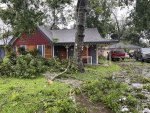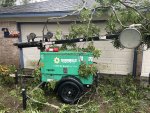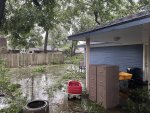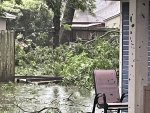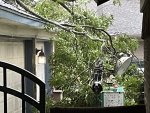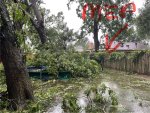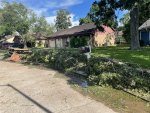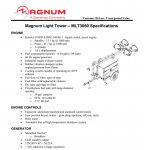Ok... again, I'm glad that you made it through ok, and that you are thinking how to make your setup even better for the next one.
As a general rule, light tower generators are designed for just that; powering lights, and in their normal usage, a few flickers isn't going to bother anyone. So, I think it is not too surprising that the generator head and voltage regulation system on your system is, for lack of a better word, simple, and perhaps not very responsive to shifting loads. You might look into whether there are other AVRs available for that generator head. Sometimes changing the capacitor out for a new one can improve the stability a little, but I would not expect a miracle. In the presence of shifting loads, I think that stability in frequency and in voltage takes more than a little engineering and tuning, and nothing is perfect.
You can buy some low cost EMI filters to reduce harmonics, if that is an issue for you, but fewer and fewer items are sensitive these days. E.g. this 20A model
If you have equipment, e.g. electronics that are sensitive to harmonics, I would start by getting the sensitive equipment on a UPS, and behind a surge suppressor. If you are running VFDs during the outage, I highly recommend EMI filters, and line reactors, but that's an unusual use case for power outages.
Personally, during storms, I expect power lines to come down and lightning, and thus prefer, if possible, not to be running anything electrical.
All the best,
2Pbfeet

